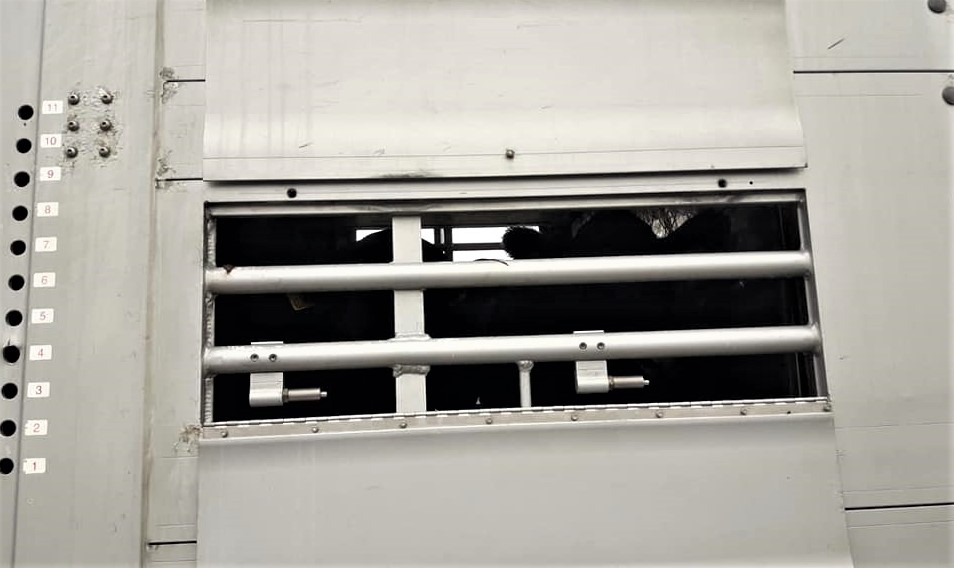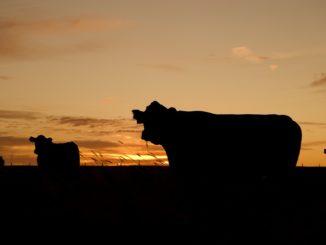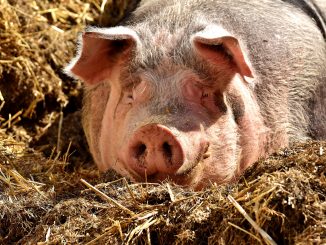
By Louise Kelleher
The European Parliament last week called on member states to step up enforcement of existing rules on protecting livestock during transport. MEPs are urging member states to ramp up spot checks, use tracking technology to monitor compliance, and apply tougher penalties for offenders. Transport times should be cut, but the preference is to phase out live exports altogether in favour of local slaughtering. And when animals are transported to non-EU countries, EU standards should be applied. Irish farmers insist the live export trade is essential for them with Brexit looming and a lack of processor competition on the island. Meanwhile in the UK animal welfare advocates say a post-Brexit Britain can do better.
On Thursday the European Parliament passed a resolution to beef up protections for livestock in transit. The resolution, aimed at securing stricter enforcement of the 2005 EU law, passed at plenary (full parliament vote) by 411 votes in favour to 43 against, with 110 abstentions.
This vote came about when, following media reports on ill-treatment of transported animals, the Parliament’s Conference of Presidents (EP president and political groups’ leaders) “tasked the Agriculture Committee with drafting an implementation report on how EU rules are being enforced in practice” the Parliament’s press office reported.
MEPs and animal welfare groups have long criticised sloppy standards on live exports, but any illusion of compliance with the rules was shattered by a damning report drafted in December by Danish MEP Jørn Dohrmann. the report stated that animals are in many cases deprived of adequate feed, water, ventilation and bedding during transport. Journey times are a particular bête noire, while rest periods and stocking densities also routinely flout the law.
Calling out “systematic, continuous and serious violations” of the 2005 Regulation, last week’s resolution places the onus on member states to “make more effective use of the strong enforcement powers conferred on them under the Regulation” to clamp down on breaches with a “harmonised EU sanction system” and penalties that are “effective, proportionate and dissuasive.” More spot checks are recommended at the pre-loading stage. If a shipment breaks the rules, the authorities must be informed in all countries along the transport route. Member states should deal with repeat offenders by confiscating vehicles, sending staff for retraining, or suspending or revoking the transporter’s license.
Island exceptionalism or a race to the bottom?
Live exports are a major driver of growth for Irish beef farmers, with the number of cattle shipped from Ireland up by 30% last year. One voice in Strasbourg to defend the trade is Vice President of the European Parliament and Irish MEP Mairead McGuinness. “We are an island nation and the live trade is part and parcel of our livestock sector and vital to its survival,” she told the Irish Farmers Journal, insisting “the live export trade is the only source of competition” for Irish beef farmers under pressure due to a lack of processors on the island.
But her EU colleagues have rather a different concern about competition: MEP Dohrmann has warned that flouting the rules on animal transit creates an “uneven playing field” between member states that can trigger a “race to the bottom” as regards welfare standards.
Already, Brexit uncertainty means a there is some level of threat to live exports from Ireland to its nearest neighbour the UK, with delays and tariffs possible. The status of Northern Ireland and its ‘backstop’ (whereby Northern Ireland may temporarily remain in the customs union) compounds the matter.
Ray Doyle of the Irish Co-Operative Organisation Society told a parliamentary committee in Ireland that the Government should be “promoting as much live export as possible to all possible countries” to counteract the potential drop in UK sales volumes following Brexit, reported Green News Ireland.
However, Irish farmers are particularly spooked by the spectre of a ban on live exports to non-EU states if animal welfare standards in those countries cannot be aligned with EU rules. Prohibiting live exports outside the EU would mean the “annihilation of Irish farming” Doyle claimed, adding there was “little or no real scientific argument” to back up the “emotive stances taken by NGOs”.
Animal welfare groups across in Ireland and the rest of Europe have been upping the pressure on transporters to improve standards. The live export trade has been dragged into the spotlight in a number of high-profile cases as activists document violations of EU rules. In an opinion piece for thejournal.ie, Caroline Rowley, spokesperson for Compassion in World Farming, Ireland, decried the “barbaric slaughter” that awaited Irish bulls after a “tortuous journey” to Libya that was monitored by her group in December. Crowley emphasised bad practice and animal suffering unrelated to Halal techniques, along with the lack of governmental oversight in the war thorn country. Ireland was the subject of a formal complaint to Brussels in 2018 over alleged systematic failures to comply with the law on transporting animals.
“I was there to witness the unfortunate animals being herded onto the Sarah, where they were set to face a tortuous journey, which normally takes eight days but in that case, ended up taking 11 days.” Caroline Rowley
Take advantage of Brexit
In the early weeks of January the RSPCA intercepted a lorry load of calves in the UK that had been on the road for 70 hours. According to reporting by trade magazine The Grocer, the animals had travelled from Scotland to the port of Ramsgate in southeast England, where they were due to board a boat to Spain. “We need the governments in the UK to take advantage of Brexit and bring an immediate end to these journeys and this suffering,” says David Bowles of the RSPCA.
The British Veterinary Association believes there is an increasing political appetite to improve live animal transport after Brexit, reported Farmers Weekly last week. Animal welfare must be at the heart of any government decision on livestock exports after the UK leaves the European Union, says the association. Indeed the UK last year launched a consultation on ending live exports, although plans for a ban seem to have fizzled out. When questioned by the BBC in September, Environment Secretary Michael Gove confirmed only that “restrictions” would be imposed on the trade.
Shift away from live exports
For those of us staying in the EU, the rules are also due an update. Thursday’s resolution called for the European Commission to take on board the latest research to ensure that transport standards meet the needs of individual species. Appropriate journey times must be defined for different animals, and vehicle specifications need to set out. The existing rules also lack a clear definition of what makes an animal fit for transport.
At the heart of the resolution is a call to shift away from live exports altogether. It emphasises short supply chains to guarantee the best outcomes for animal welfare: livestock should ideally be slaughtered close to the place of rearing, and meat processed and sold locally. Semen and embryos should be transported for use instead of breeding animals. MEPs urged the European Council and the European Commission to develop a strategy for this shift. Recognizing that small slaughterhouses are “economically unviable” due to fluctuating markets and policy changes, MEPs are looking to support “a more regional model of livestock production in which animals are born, fattened and slaughtered in the same region”. The resolution also calls for a new 2020-2024 animal welfare strategy.
In the meantime the European Parliament is to set up a committee of inquiry to examine lacklustre enforcement of the 2005 law, and to investigate reports of ill-treatment of transported animals. Looking ahead to the new CAP, MEPs want to peg CAP payments to compliance with animal welfare standards.
Effectively incentivizing transporters to play by the rules, this is a rare carrot for farmers in a resolution heavy on sticks. After years of hand-wringing about the failure to take the live exports law seriously, it would appear that MEPs now mean business.





